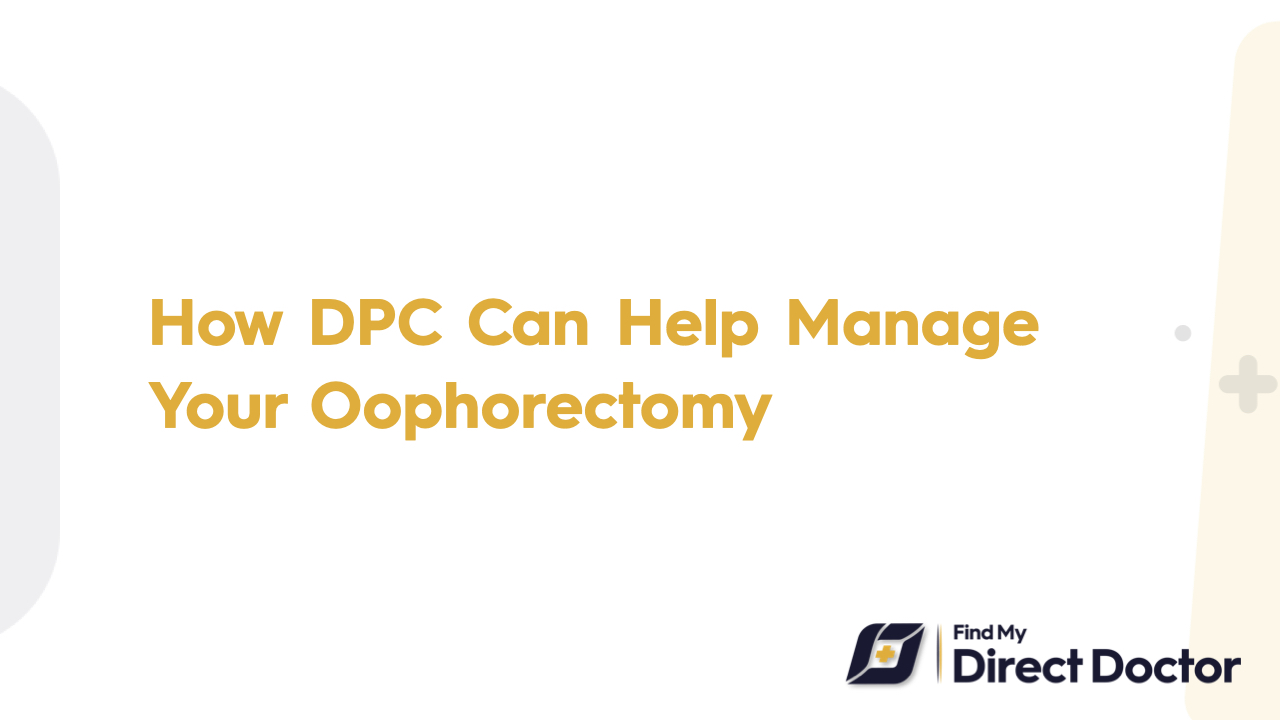



One or both ovaries may be surgically removed during an oophorectomy. Usually, endometriosis, benign ovarian tumors, ovarian cancer, and other gynecological disorders are treated with this operation. One ovary is removed during a unilateral oophorectomy, and both ovaries are removed with a bilateral oophorectomy. Pelvic pain, irregular bleeding, or signs of ovarian cancer such bloating, altered bowel habits, or pain during sexual activity might all be signs that an oophorectomy is necessary. Hormonal changes following the treatment, particularly if both ovaries are removed, can cause symptoms such as mood swings, vaginal dryness, and hot flashes. If the woman has not yet reached menopause, the procedure may also trigger the start of menopause.

When it comes to managing treatment both before and after an oophorectomy, Direct Primary treatment (DPC) provides invaluable assistance. Patients can build a strong relationship with their healthcare practitioner through the DPC model, guaranteeing rapid medical advice and individualized treatment. When it comes to managing post-operative recovery or addressing problems before surgery, DPC enables more frequent and thorough appointments. Following the treatment, patients can be continuously monitored for any problems, hormone abnormalities, or emotional health. At every stage, from pre-operative counseling to long-term follow-up treatment, patients are certain to feel supported by DPC's attitude and accessibility.
The comprehensive and continuous care given by the same medical professional, who is well-versed in the patient's medical background and particular requirements, is one of the main advantages of DPC for oophorectomy patients. The model's focus on open, honest communication guarantees that patients get prompt medical advice and assistance along their course of treatment. A more comprehensive approach to care is made possible by DPC, which takes into account not only the physical aspects of recuperation but also the emotional and mental health that may be affected by the loss of ovarian function. Additionally, DPC's emphasis on preventative care might assist in managing and keeping an eye on any long-term health consequences that might be more prevalent following the operation, like cardiovascular disease or osteoporosis.
The treatment of oophorectomy is very customized in Direct Primary Care. To create a personalized care plan, the healthcare professional considers the patient's age, medical history, and general health. In the event that both ovaries are removed and the patient is exhibiting menopausal symptoms, this may involve hormone replacement treatment (HRT). Regular follow-up appointments are made possible by DPC in order to modify medication, keep an eye out for infection-related problems, and handle any mental difficulties that may arise after surgery. The patient and practitioner have a tight relationship that enables customized counsel, meeting the patient's specific needs and promoting active management of their recovery and long-term health. For patients recuperating from an oophorectomy, this individualized approach provides a more thorough and encouraging treatment experience.
Previous Post